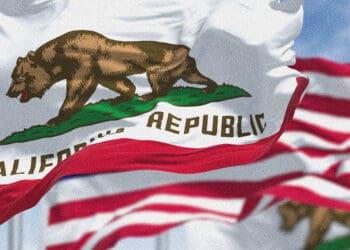As health care and cleaning products fly off the shelves, the DOJ is taking action. Cozen O’Connor’s David Reichenberg discusses how its new directive is affecting everyday business and what organizations can do to maintain compliance.
In the wake of this global pandemic, competition law and associated compliance are likely not the first topics that come to people’s minds. Nonetheless, there have been a series of government announcements from federal and state officials that address important economic phenomena that bear upon our ability to get through this crisis. This article quickly reviews those government announcements, discusses certain private party reactions and potential scenarios and makes recommendations on how compliance professionals and stakeholders may consider forging a path forward.
Government Announcements – What’s Happened
On March 9, 2020, the Department of Justice (including its Antitrust Division) published a press release cautioning the public that collusive practices between competitors such as price fixing and market allocation will still be prosecuted criminally, including for products and services essential to combating the crisis. Also on March 9, the Federal Trade Commission announced that it had sent warning letters to certain companies for misleading or fraudulent practices that sought to capitalize on the public’s fears. Both agencies said they would monitor social media, online marketplaces and incoming complaints to initiate investigations and bring necessary actions. The DOJ will continue to use its Procurement Collusion Strike Force to identify patterns and suspicious behavior.[1]
Governors and State Attorney General Offices, such as those from California, Michigan, Massachusetts and New York, have also made announcements targeting price gouging on essential goods and sent cease-and-desist letters to companies following up on private complaints. Several AG offices have setup new hotlines and email addresses to receive feedback specific to COVID-19.
In addition, on March 24, 2020, the DOJ and FTC released joint guidance relating to potential collaborations between competitors to combat the crisis. The guidance gave examples of collaborations that likely do not violate the antitrust laws, such as health care facilities working together to provide resources and services to communities without immediate access to personal protective equipment, medical supplies or health care. The FTC and DOJ committed to provide responses within seven days to companies that solicit their input on specific matters. Still, the notice reiterated that the agencies stand ready to pursue criminal and civil violations of the antitrust laws, including restraints on competition that increase prices, lower wages or decrease output and efforts by monopolists to engage in exclusionary conduct. While the guidance did not identify such civil misconduct specifically, they may include vertical distribution or pricing practices that are argued to hinder the availability of products.
Corporate Responses to COVID-19 Antitrust Announcements – Initial Reactions and Potential Scenarios
In many cases, there is an obvious need and opportunity for companies to engage with customers and prospective customers through this crisis, for many reasons broader than antitrust. Still, there are examples of such efforts that implicitly address the concerns raised by the authorities, including: (1) converting manufacturing capacity from traditionally produced products to essential crisis products such as antibacterial soap, (2) setting aside funds to support logistical efforts for treatment, (3) combining research efforts to determine how the immune system responds to the virus, (4) adapting medical production facilities to increase the output of ventilators and (5) designers’ use of sewing teams to make medical masks and hospital gowns.
All of these efforts illustrate corporate cultures that embrace being a part of the solution, rather than an alleged “opportunist” that seeks to benefit from fear, uncertainty and doubt resulting from the pandemic. In the best cases, companies’ efforts are providing supply in areas where it is needed most, and thus traditionally, would lower prices to consumers. While application of antitrust laws does not usually depend upon a party’s intent, under these circumstances, an effective crisis management strategy and action plan may lessen the likelihood that an authority has reason to scrutinize other practices.
The aforementioned antitrust scrutiny of companies that sell essential goods to those retailers is an area in which corporate responses are in potentially challenging and unprecedented waters. For instance, demand may greatly outpace supply for essential products, and companies need to set out supply, distribution and pricing plans that can draw scrutiny from customers and/or authorities. In such circumstances, may the company reach out to its competitor to assess whether an alternative joint production plan can meet a customer’s concerns? While the most recent joint guidance suggests that such collaboration may be permitted, there may still be a concern that the companies cannot provide specific capacity details or other confidential information to accomplish an important public service (which an antitrust lawyer may call a paramount “procompetitive effect” or “efficiency”).
As another example, what if a company has fallen on hard times in the wake of the crisis and is in serious danger of going out of business, but can be acquired by a market leader that has the financial ability to weather the storm and maintain product lines that consumers want outside of a pandemic? In this circumstance, under current joint guidance (see earlier footnote), the government may seek extra time to review the deal. Traditionally, such “failing firm” or “efficiency-based” defenses do not pass muster, but perhaps the situation could be different in these circumstances warranting a different result.
Recommendations – How Should We Proceed?
Make Certain You and Your Company are Doing Your Part
As the above examples illustrate, there may be low-hanging fruit in terms of actions your company can take that both accomplish its overall objectives and address the concerns expressed by the antitrust authorities. If your company has the ability to lend its resources or convert its capabilities to an initiative that is most needed or can aid the government’s ability to tackle the pandemic (e.g., through messaging advocating safety), that would bode well for the antitrust effort. Again, while these efforts may not necessarily address the phenomena antitrust is most concerned with (e.g., price, supply, innovation, choice), it is a point in the right direction.
Aim for Open Dialogue with Regulators and Customers
The foregoing guidance issued by regulators should be heeded by companies as they assess their reaction and strategy in response to the crisis. At the same time, where companies are considering actions that do not neatly fit into one of the expressly addressed scenarios, it would be incredibly helpful to have a constructive dialogue with regulators or concerned customers about a way forward that accomplishes everyone’s objectives. While the opportunity to submit a business review letter may prove effective in certain situations, there may be decisions that cannot wait seven days for feedback, and it would be more productive to engage in real-time discussion. One key to such a dialogue is for both parties not to fear that that the other party is waiting for a “gotcha” moment, which leads to an investigation or complaint on the agency side or an argued concession/waiver on either side. In this environment, parties likely seek to do the right thing and not take advantage of the situation; creating a process or dialogue for that to happen openly appears most productive.
Take the Opportunity to Create/Refresh/Recirculate Your Antitrust Compliance Program
The topline takeaway from the first DOJ/FTC announcement is that antitrust law still applies, despite unprecedented circumstances, where companies and individuals need to do their part to be sure that compliance occurs. If your company does not have an antitrust compliance policy, program and/or associated training, this is an opportune time to implement one. If your company has a program in place, but it has not been updated recently or there are new scenarios that can be reasonably expected in this environment, it is also a good time to refresh and/or recirculate.
While antitrust is probably not the first thing on people’s minds right now, its aims and objectives are in line with getting to the other side of this crisis most quickly, productively and cooperatively.
[1] In addition, on March 13, 2020, the DOJ Antitrust Division and FTC announced a series of temporary changes to their merger review process during the pendency of the pandemic. These include: the suspension of early termination (in which a deal is cleared within 30 days), a request by the DOJ Antitrust Division that merging parties give it an additional 30 days to complete its review of transactions, and acceptance only of electronic filings. On March 27, the agencies announced that they would resume the practice of granting early terminations when it is determined that no enforcement actions would be taken.



 David Reichenberg is an Antitrust and Litigation Partner at
David Reichenberg is an Antitrust and Litigation Partner at 









